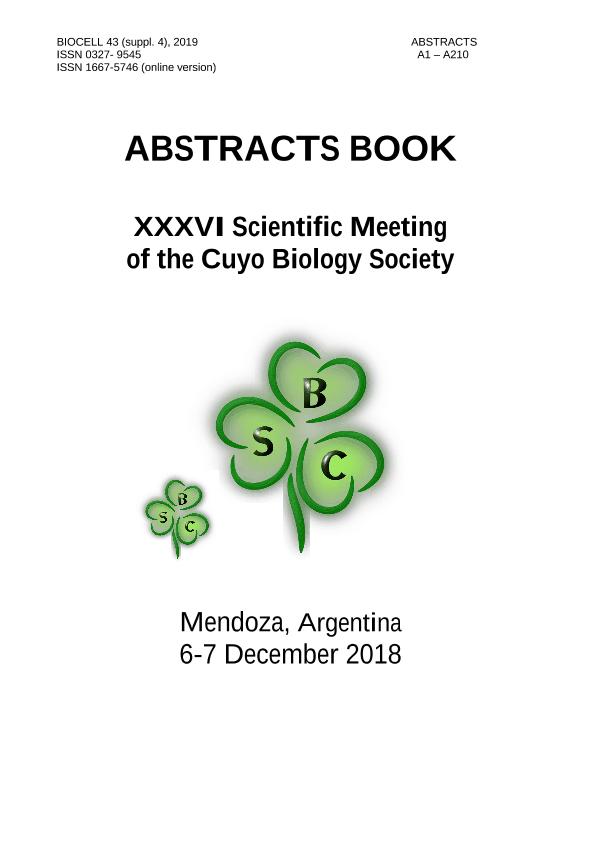Evento
Immune response to develop a vaccine against leishmaniasis
Tipo del evento:
Reunión
Nombre del evento:
XXXVI Scientific Meeting of the Cuyo Biology Society
Fecha del evento:
06/12/2018
Institución Organizadora:
Sociedad de Biología de Cuyo;
Título de la revista:
Biocell
Editorial:
Tech Science Press
ISSN:
0327-9545
Idioma:
Inglés
Clasificación temática:
Resumen
Leishmaniasis is an infectious disease caused by flagellated parasites belonging to Leishmania genus and transmitted by phlebotominae sandflies. Leishmaniasis is distributed in 98 countries of the world; in Argentina, the endemic areas are the Northwest and Northeast regions of the country.Leishmania parasites present two different stages: the intracellular amastigote localized in the mammalian polymorphonuclear cells and the extracellular promastigote, presents in the sanfly vector. This disease manifests different clinical forms: cutaneous, mucocutaneous or visceral leishmaniasis, mainly depending on the species of Leishmania involved.There is currently no vaccine against human leishmaniasis. In order to develop that, it is important to considerate the immunology of susceptibility and resistance to leishmaniasis, which depends on the genetic background of host and the specie, and even the specie of Leishmania involved. In consequence, it is possible that a vaccine is effective against one Leishmania specie but not against others.Our research group has been developing first generation vaccine, using Total L. amazonensis Antigens (TLA) which combined with Poly(I:C) and/or Montanide ISA 763 produce a Th1 like immune response and protect against L. amazonensis infection. Using serums of vaccinated mice, immunoproteomic assay was made in order to identify and select the immunodominant antigens, and therefore develop third generation vaccines.
Palabras clave:
Leishmania
,
Vaccine
,
Immunology
Archivos asociados
Licencia
Identificadores
Colecciones
Eventos(IMBECU)
Eventos de INST. DE MEDICINA Y BIO. EXP. DE CUYO
Eventos de INST. DE MEDICINA Y BIO. EXP. DE CUYO
Citación
Immune response to develop a vaccine against leishmaniasis; XXXVI Scientific Meeting of the Cuyo Biology Society; Mendoza; Argentina; 2018; 4-4
Compartir




